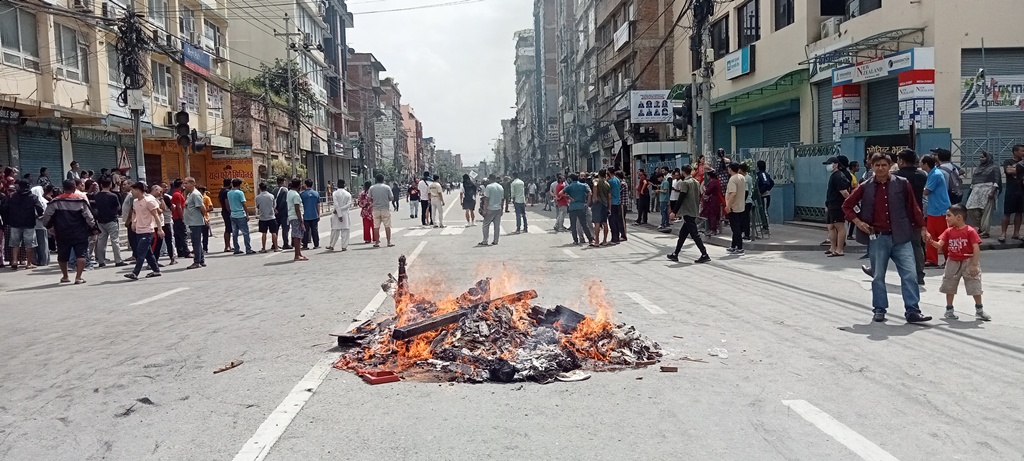Violent protests in Nepal this week have left Indian pilgrims and tourists caught in the unrest. According to reports, a group of devotees returning from the Pashupatinath Temple in Kathmandu on Thursday, September 11, came under assault when miscreants targeted their Uttar Pradesh-registered bus, pelting it with stones and robbing passengers of cash, mobile phones, and luggage.

Several travellers sustained injuries as the attackers smashed the windows and damaged the vehicle before it reached the Sonauli border in Uttar Pradesh later in the evening.
According to police sources, assistance was provided by Nepalese army personnel, and the Indian government arranged for stranded passengers to be airlifted from Kathmandu to Delhi.
ALSO READ: Ex-Nepal Chief Justice Sushila Karki chosen to lead protesters in talks with army
Officials also confirmed that a number of tourists from Andhra Pradesh remain stuck in Nepal, where unrest has disrupted normal movement. Andhra Pradesh Chief Minister N Chandrababu Naidu said nearly 200 Telugu citizens are among those stranded.
"Mob Jumped On My Cab, Smashed the Glass": Indian Tourist Recounts Horror Amid Nepal Unrest @Ankit_Tyagi01 pic.twitter.com/CVCLZ1sxNI
— NDTV (@ndtv) September 11, 2025
As per another report, at least 14 people from four families in Chhatarpur district of Madhya Pradesh are stranded in Kathmandu amid the protests.
The group, which includes women and children, was visiting the Pashupatinath temple. The hotel where they are staying has run out of food, a member of the group said in a video statement on Wednesday, September 10.
ALSO READ: Nepal political crisis: Army, protesters to discuss interim leader after violence kills 30
Meanwhile, the crisis has also disrupted regular cross-border transport. The Delhi Transport Corporation’s Delhi-Kathmandu Maitri Bus Sewa, which operates six times a week over a 1,167-kilometre route, has been unable to continue its services due to the turmoil. Authorities in India are coordinating closely with the embassies in both countries to ensure the safety of Indian nationals.
Indian national Upasana Gill, in Pokhara (Nepal) to host a volleyball league, says protesters set her hotel on fire & chased her with sticks. Even tourists aren’t being spared in the violent unrest shaking Nepal. pic.twitter.com/sWrFQgTkBO
— The News Drill (@thenewsdrill) September 10, 2025
The unrest began on September 8 across several Nepalese cities, including Kathmandu, Pokhara, Butwal and Birgunj, after the government announced a ban on major social media platforms.
The move fuelled anger over corruption, nepotism, and growing economic disparity, with online discussions around the “Nepo Babies” trend amplifying frustration over the lavish lifestyles of politicians’ children.
Demonstrations intensified into violent clashes between protesters and security forces. Official figures indicate that at least 30 people have been killed and over 1,000 injured. A curfew has been imposed in several major cities, including the capital, to bring the situation under control. The escalating movement has already forced multiple political resignations, including that of Prime Minister KP Sharma Oli.


